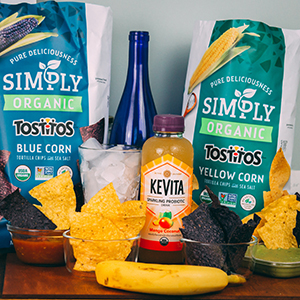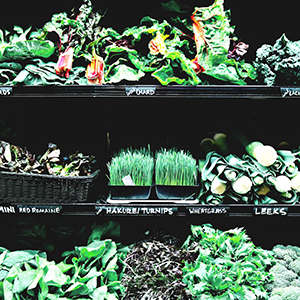 Over the past year, I have been to multiple health food talks, I’ve juiced fresh vegetables monthly, and overall, I’ve looked much closer at the quality of all the things I eat. I’ve done this more this year than ever before, but why? As we get access to
Over the past year, I have been to multiple health food talks, I’ve juiced fresh vegetables monthly, and overall, I’ve looked much closer at the quality of all the things I eat. I’ve done this more this year than ever before, but why? As we get access to
more and more health-related information about what we eat and how it affects our bodies long term, regarding heart disease or diabetes for example, I realize I don’t want to be that person. I’m not willing to put up
with those diseases just so I can indulge now. I’d like my food to have more benefits with less “extras” and I’d be willing to pay more to have it. I have a growing desire to look past the general “All-Natural” claims and understand the specifics of the food purchased. And perhaps most-importantly, it’s not just me — it’s consumers as a whole — and health food entrepreneurs are taking note.

How consumers have changed the game
Healthy eating is becoming more mainstream, and consumers are more educated. Most consumers now are expecting foods and
beverages that meet nuanced attributes of health, sustainability and wellness. Consumers are expecting clearer and cleaner labels on the products they buy. Growing up, for me, it was rare to flip to the back of a product on a shelf and read it before putting it into the cart, but today, that’s quickly becoming the norm. Products that claim to be “all natural” and/or “organic” are another strong trend, with consumers looking for fewer preservatives and artificial ingredients, as well as a commitment to transparency. It’s a way of activism: consumers are “voting with their dollars” and are supporting companies that align with their personal beliefs.
Entrepreneurial health food companies start a healthy shift
In response, retailers are taking more positions with new, smaller, more innovative companies in order to diversify and stay relevant. This explains why we are seeing so many new products with shorter and simpler ingredient lists, ones that anyone can pronounce! The health food business sees the need for higher quality and more simplicity, and this brought out some entrepreneurial opportunities. Pioneering companies such as RXBAR, Panera, Juice Generation, Beyond Meat, and KIND (among countless others) embodied these values even before it hit mainstream.

The broader food industry gets on board
Now, we’re seeing the broader food industry get on board. One great example is Greenwise, an initiative by local grocer Publix. Publix has taken heed and listened to the demands of consumers; they realize they need to make changes for the better of our people and our planet. Greenwise Market puts health and wellness at top priority, offering products that meet these new demands.
With companies changing products — some that have been established for 100 years or more — we’re in a new age for healthy living. Companies are re-creating items with no-sugar alternatives, fewer or removed saturated fats, no artificial coloring, GMO-free, and many other healthier variants. Entrepreneurial food companies are creating new and innovative food products too, often focusing on specialty plant-based foods and whole foods. There’s no better time to start reading those labels and investing in a healthier future.
January 2020
Content in this material is for general information only and not intended to provide specific advice or recommendations for any individual. Companies mentioned are not affiliated with LPL Financial or Allen & Company.
